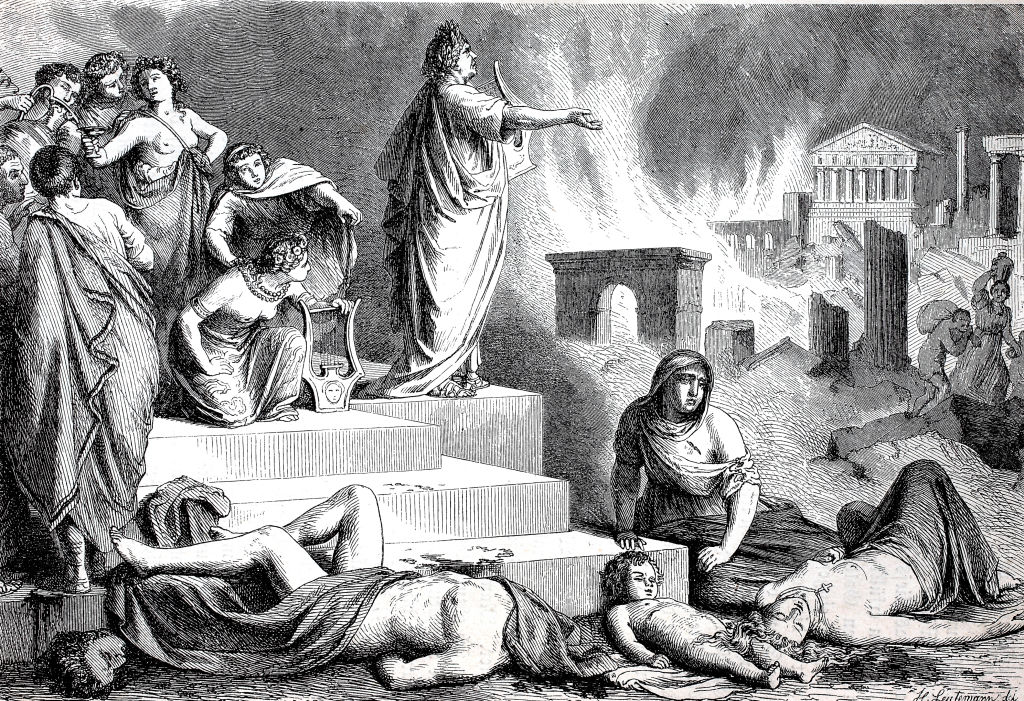18 July 64: Great Fire of Rome
Nero was one of the Roman Empire's most notorious emperors. And his role in the fire of Rome remains a controversial aspect of his reign.


Get the latest financial news, insights and expert analysis from our award-winning MoneyWeek team, to help you understand what really matters when it comes to your finances.
You are now subscribed
Your newsletter sign-up was successful
Want to add more newsletters?
In 54 AD, one of the Roman Empire's most controversial emperors ascended the throne. Nero, the adopted son of Claudius, rapidly became notorious for murdering both his stepbrother and his mother, while his spending on entertainment drained the Treasury.
But the most controversial aspect of his reign was his alleged role in the fire of Rome, which destroyed large parts of the city in July 64 AD, and burned for over a week before being put out.
The causes are disputed. The historian Tacitus (who was nine at the time) merely states that gangs of people were seen deliberately spreading the fire. There was also a popular rumour that Nero had been seen playing the lyre, after returning from his villa in Antium.
Try 6 free issues of MoneyWeek today
Get unparalleled financial insight, analysis and expert opinion you can profit from.

Sign up to Money Morning
Don't miss the latest investment and personal finances news, market analysis, plus money-saving tips with our free twice-daily newsletter
Don't miss the latest investment and personal finances news, market analysis, plus money-saving tips with our free twice-daily newsletter
The archeological evidence for Nero's involvement is ambiguous, but he certainly had a motive (more on that in a moment) and he also quickly moved to scapegoat Christians, viciously persecuting them.
After the fire, Nero spent fortunes rebuilding Rome. Some of the changes were for the better: he improved the water supply, and filled in a nearby marsh. But he also took advantage of the devastation to build himself a new palace (which he named the Domus Aurea), a project which had been strongly opposed by the Roman senate.
To pay for it, he reduced the amount of gold in the coins, raised taxes on the provinces and forced Roman citizens to pay in to a "voluntary" fund.
This greed eventually led to his downfall. Discontent with the tax burden sparked a popular revolt. It was put down, but the army and the senate turned against Nero, forcing him to leave office and commit suicide in 68 AD.
Get the latest financial news, insights and expert analysis from our award-winning MoneyWeek team, to help you understand what really matters when it comes to your finances.

-
 The rare books which are selling for thousands
The rare books which are selling for thousandsRare books have been given a boost by the film Wuthering Heights. So how much are they really selling for?
-
 Pensions vs savings accounts: which is better for building wealth?
Pensions vs savings accounts: which is better for building wealth?Savings accounts with inflation-beating interest rates are a safe place to grow your money, but could you get bigger gains by putting your cash into a pension?